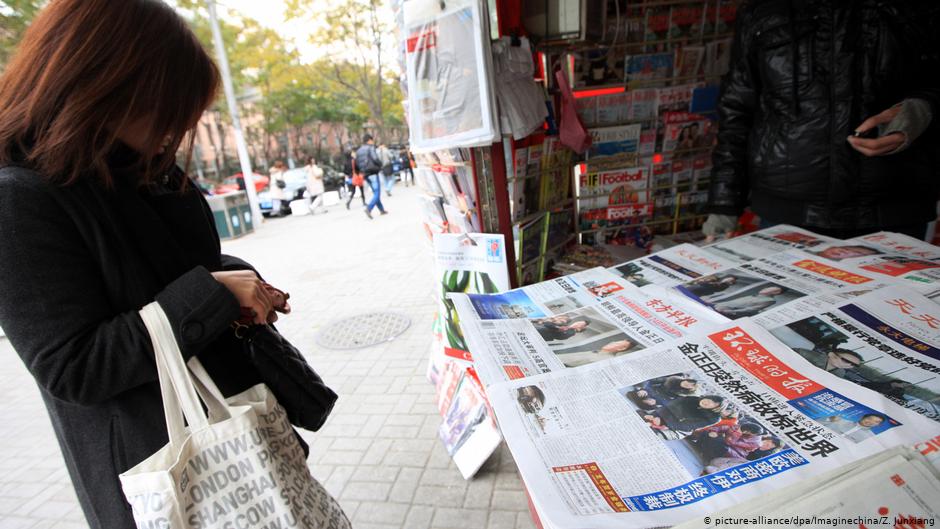In an apartment in downtown Cairo, Khaled al-Balshy, editor of the “New Badeel”, has to multi-task in order to keep his new online venture afloat. From 8:30AM to midnight, he assigns stories to 40 reporters, receives feeds, edits copy and makes periodic site updates.
After a year and a half hiatus, the left-leaning Al-Badeel newspaper re-emerged last week with an online version sponsored by dozens of its former reporters. The operation is now independent from its initial owners.
“This is an attempt to bring back what we did in the past before it fades away completely,” said al-Balshy, who served as editor-in-chief of the lifeless print version. "There are clear indications that they [government officials] are closing down media outlets that disseminate news terrestrially so we decided to do it from the cyberspace.”
The online newspaper was launched on 1 November at a critical juncture for Egyptian press freedom. Government officials recently have imposed a series of restrictions on the privately-owned media.
“The resurgence of Al-Badeel proves that the Internet is the only space that remains away from the full control of governments, businessmen or security apparatuses,” said Gamal Eid, Executive Director of The Arab Network for Human Rights Information. The network provided al-Balshy with technical support to activate the site.
“The future is for the electronic rather than the print press. It's cost is much lower; it has a wider audience and does not require any licensing from the government,” Eid said, claiming that the "New Badeel" attracts at least 7,000 visitors a day.
According to the online database for site information Alexa, the number of visitors, however, does not exceed 3,200.
During the summer of 2009, Al-Badeel’s owners decided to shut down the paper, citing untenable debts that reached nearly LE18 million. Back then, the editorial team and the owners put the blame on each other for the failure. Journalists accused the shareholders of not providing adequate publicity, eventually hampering circulation, while owners blamed the staff for hiring more reporters than necessary and, thus, burdening the company with overpaid staff.
Yet, today al-Balshy adds another allegation to the list. He argues Al-Badeel's owners succumbed to government pressure to halt the project.
“I used to believe that the matter was purely financial,” said al-Balshy. “But after a year and a half I realized it is more than that. There were offers to buy Al-Badeel but all these offers did not lead to anything for unknown reasons. Probably, the owners were facing pressures from the state that could affect their own businesses.”
For Elsayed Karawya, one of Al-Badeel’s three prime shareholders, these charges are groundless.
“No pressures were exercised on us and the matter is only financial,” said Karawya, a prominent construction businessman. “Plus, selling or not selling the paper is none of his [al-Balshy's] business.”
The print version of Al-Badeel first hit newsstands in summer 2007. In a short time, the paper established itself as a truly independent daily that offered extensive coverage of workers’ protests, human rights abuses and corruption. At the time of its closure, the paper had reached a daily circulation of 10,000 copies.
Resurrecting such an outlet without the support of its initial sponsors is an act of defiance, according to Karawya.
“This is meant to defy us,” said Karawya. “They claim to be the true owners of the paper. This is a hijack of the paper but we are not planning on chasing them legally because the cyberspace is open to anyone.”
The “New Badeel” site hosts an array of rubrics that include news, economy, investigative, reports, art, culture, sports and opinion columns.
“Our difference is what we are betting on to compete,” said al-Balshy. “ We have a different editorial policy and a different ceiling of expression. Our policy represents the left and social segments that are not well covered in the media such as workers. As to the level of freedom we will have no ceiling.”
For the time being, the content is generated by a team of forty volunteer journalists, according to al-Balshy. Hence, the site costs only LE10,000 per month, which al-Balshy says, comes from his own pocket.
Yet, his coffers cannot fund the publication for more than three months. Attracting investors is now the imperative.




